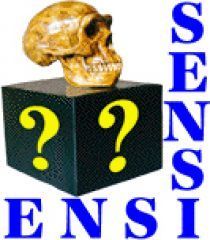Grade Level(s):
- 9-12
Source:
- ENSI
Resource type:
- classroom activity
Discipline:
- General
Time: One class period
Overview
Students construct plausible scenarios to explain a series of canceled bank checks. They revise their original hypotheses with new evidence and learn how human values and biases influence observation and interpretation.

- [What is science?: Grades 9-12] Science works only with testable ideas. (P2, P3, NOS2)
- [What is science?: Grades 9-12] Scientists strive to test their ideas with evidence from the natural world; a hallmark of science is exposing ideas to testing. (P3, P4, P6, P7, NOS2)
- [What is science?: Grades 9-12] Scientific knowledge is open to question and revision as new ideas surface and new evidence is discovered. (P4, P6, NOS3)
- [What is science?: Grades 9-12] Scientific ideas cannot be absolutely proven.
- [How science works: Grades 9-12] The process of science involves observation, exploration, testing, communication, and application.
- [How science works: Grades 9-12] Scientists test their ideas (hypotheses and theories) by figuring out what expectations are generated by an idea and making observations to find out whether those expectations are borne out. (P4, P6)
- [How science works: Grades 9-12] Scientists can test ideas about events and processes long past, very distant, and not directly observable.
- [How science works: Grades 9-12] Scientists test their ideas using multiple lines of evidence. (P6, NOS2)
- [How science works: Grades 9-12] Scientists look for patterns in their observations and data. (P4, P5, NOS2)
- [How science works: Grades 9-12] Scientists try to be objective and work to identify and avoid bias.
- [How science works: Grades 9-12] Different scientists may interpret the same data in different ways. (P7)
- [Hypotheses and theories: Grades 9-12] Hypotheses are proposed explanations for a narrow set of phenomena. (P6)
- [Hypotheses and theories: Grades 9-12] Hypotheses are usually inspired and informed by previous research and/or observations. They are not guesses. (P6)
- [The social side of science: Grades 9-12] Scientists usually work collaboratively. (NOS7)
- [The social side of science: Grades 9-12] Scientists are influenced by their personal experiences and cultures. (NOS7)
- NOS Matrix understanding category 2. Scientific knowledge is based on empirical evidence.
- NOS Matrix understanding category 3. Scientific knowledge is open to revision in light of new evidence.
- NOS Matrix understanding category 7. Science is a human endeavor.
- Science and Engineering Practice 2. Developing and using models
- Science and Engineering Practice 4. Analyzing and interpreting data
- Science and Engineering Practice 5. Using mathematics and computational thinking
- Science and Engineering Practice 6. Constructing explanations and designing solutions
- Science and Engineering Practice 7. Engaging in argument from evidence
There are currently no teaching tips for this resource.
